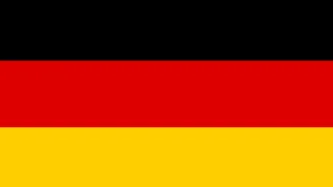Search
Content type: Examples
Uber and Bolt users in South Africa and Nigeria have been booking hoax rides in each other's country and pranking gig workers to express their anger after the beauty pageant contestant Chidimma Adetshina controversially pulled out of the Miss South Africa pageant and then agreed to appear in a similar contest in Nigeria, fuelling tension between the two countries. Bolt has responded by restricting inter-country ride requests and blocked the users in question. Uber says it is investigating.Read…
Content type: Examples
FullScreen Research claims that in the competitive German food delivery market, Lieferando uses automation to monitor its employees and that Wolt violates labour laws by paying couriers in cash and employing them illegally A former supervisor with Lieferando says that the system flags up abnormalities for a team of watching agents, who see each courier's exact location and are supposed to ask drivers the reason for delays. Lieferando denies that it illegally controls drivers'…
Content type: Examples
German data protection authorities have ruled that the use of Microsoft Office 365 in schools is not compliant with GDPR, citing a lack of transparency around how and where Microsoft processes and stores student data as well as the potential for third-party access. German federal and state data protection authorities have been looking at how to improve Office 365 for two years but deems changes Microsoft has made insufficient to bring the software into compliance.
https://www.computerweekly.…
Content type: Examples
July 2021 saw violent protests that left 72 people dead and 1,300 in prison after former president Jacob Zuma was jailed for failing to appear before a constitutional court’s inquiry into corruption during his time in office. In response, the South African government deployed the military onto the streets in the provinces of Gauteng and Kwazulu Natal, and began monitoring social media platforms and tracking those who “are sharing false information and calling for civil disobedience”. President…
Content type: Examples
The South African government urged social media platforms to trace and remove posts that incite violence, share false information, and call for civil disobedience after a July 2021 series of spiralling protests sparked by the jailing of former president Jacob Zuka. A number of other African countries such as eSwatini, Senegal, Nigeria, Uganda, Niger, and the DRC have also been increasingly using tracking software, internet shutdowns, and social media monitoring during protests and elections.…
Content type: News & Analysis
Today, the Constitutional Court of South Africa in a historic judgment declared that bulk interception by the South African National Communications Centre is unlawful and invalid.
The judgment is a confirmation of the High Court of South Africa in Pretoria’s powerful rejection of years of secret and unchecked surveillance by South African authorities against millions of people - irrespective of whether they reside in South Africa.
The case was brought by two applicants, the amaBhungane Centre…
Content type: Examples
The government has revealed that illegal immigrants will also benefit from the rollout of the Covid-19 vaccine.
National Treasury director-general Dondo Mogajane said this during a virtual meeting between his department and the SA National Editors Forum on Wednesday afternoon.
“We are in SA and we have many millions of undocumented people and [we can't say they shouldn't receive the vaccine as they are undocumented]. The demand for the vaccine is going to be exceeded, and we are not going to…
Content type: Examples
Germany’s contact tracing system is thought to have been critical in controlling the COVID-19 outbreak, especially given superspreader events such as infections in meat packing plants. Each of Germany’s 16 federal states is responsible for health, and together with the national Robert Koch Institute they support authorities at city or council level, who are responsible for outbreak investigation and management, including contact tracing.
The country dubbed COVID-19 a notifiable disease early,…
Content type: Examples
A study describes the data transmitted to backend servers by the Google/Apple based contact tracing (GAEN) apps in use in Germany, Italy, Switzerland, Austria, and Denmark and finds that the health authority client apps are generally well-behaved from a privacy point of view, although the Irish, Polish, Danish, and Latvian apps could be improved in this respect. However, the study also finds that the Google Play Services component of the apps contacts Google servers as often as every 20 minutes…
Content type: Examples
The Israeli digital ID card creator Pangea EVP has developed an immunity passport intended to give individuals access to public spaces, including airports. The passport will include a photo of the holder, a digital signature, a hologram, and a chip. When they want to fly, holders will insert flight and medical details into a web portal; the system will then advise the health protocol they need to follow. If they test negative for COVID-19, the laboratory will issue a smart card that…
Content type: Examples
The German health minister, Jens Spahn, said the country required advice from the country’s ethics council before it could use the millions of antibody tests it had procured from the Swiss pharmaceutical company Roche to help determine how freely people could move around the country. Spahn cited the risk that people would try to get themselves infected if immunity passports appeared to promise greater freedom.
https://www.reuters.com/article/health-coronavirus-germany-antibodies/armed-with-…
Content type: Examples
At the end of March, jointly organised by the Robert Koch Institute (Germany’s public health body), the German Centre for Infection Research, the Institute for Virology at Berlin’s Charite hospital, and blood donation services, researchers planned to begin conducting blood tests among the general public in order to determine how many people test positive for antibodies to the coronavirus. Gerard Krause, head of epidemiology at the Helmholtz Centre for Infection Research, and Brauinschweig,…
Content type: Examples
Germany’s “Corona-Warn” contact tracing app amassed 6.5 million users (7.8% of the German population) in the first 24 hours after its June 16 launch despite setbacks that included disputes over data privacy and functionality. The app was developed in six weeks by a team of developers and engineers from Deutcsche Telekom and SAP and is built on the Apple-Google notification framework. In a poll conducted by ARD around the time of the app’s launch, 42% of Germans said they would use the app,…
Content type: Examples
Local health authorities in Germany have relied on human contact tracers since the country confirmed its first COVID-19 cases early in 2020, and say that doing so has helped the country keep its death rate comparatively low even with a less restrictive lockdown than many other countries. Germany aims to have 16,000 contract tracers overall, or five for every 25,000 people. Tracing involves phoning each newly-diagnosed patient and asking their movements; those who have been in close contact for…
Content type: Examples
Our partners from Right to Know campaign in South Africa produced this infosheet to simplify what the South African government has committed to doing in ensuring that the use of surveillance does not impact negatively on people’s rights to privacy and that necessary data protections are taken into cognizance, whilst the necessary safeguards are put in place to protect citizens during this period of COVID 19.
Link: https://www.r2k.org.za/2020/04/14/covid-19-surveillance-infosheet/
Content type: Examples
Researchers at the University of Cape Town are developing the smartphone app COVI-ID to help the South African government track people who may not know they have contracted COVID-19, as well as people who have come into contact with those who have tested positive. The app will use Bluetooth and geolocation (via GPS, cellphone tower signals, and wifi) to collect the personal locations of users along with their infection status and store the information on the device using self-sovereign identity…
Content type: Examples
Three days after announcing Germany would adopt the centralised Pan-European Privacy-Preserving Proximity Tracing (PEPP-PT) standard for contact tracing, the country's chancellery minister Helge Braun and health minister Jens Spahn announced they would instead use the decentralised approach backed by Apple, Google, and other European countries. While both standards rely on Bluetooth connections between nearby phones, PEPP-PT would have required Apple's cooperation to implement, and the company…
Content type: Examples
The regulations brought in to curb the spread of COVID-19 in South Africa included directions published by the minister of communications and digital technologies that critics claimed violated the country's constitution. On the plus side, the regulations ordered service providers to ensure continued provision of internet and telecommunications services, and enabled temporary licensing of spectrum bands, which could increase internet capacity. However, the regulations also make publishing a…
Content type: Examples
Germany's federal agency responsible for disease control and prevention, the Robert Koch Institute, has teamed up with the health technology start-up Thryve to develop an app called Corona-Datenspende ("data donation") that works with a variety of smartwatches and fitness wristbands. The app is designed to use the device's sensors to collect user data, and includes algorithms to it to spot symptoms linked to COVID-19 and help predict the spread and containment of the virus. More than 50,000…
Content type: Examples
The government has issued a substantial rewrite of a controversial proposal to track people using their phones and other devices in the bid to contain Covid-19. AmaBhungane, an investigative journalism newsroom, said the first “directions” – issued last week by the minister of communications – raised "serious concerns for their vagueness and lack of privacy protections”. The new regulations provide more judicial oversight, restrict the purpose to contact tracing, and aim to ensure that…
Content type: Examples
The South African National Institute for Communicable Diseases and the Council for Scientific and Industrial Research will partner with Telkom and Samsung to create a track and trace system specifically for the South African context, which includes high levels of economic inequality, poverty, and overcrowding. The system will collate data sources such as GIS in order to track those who may be infected and those whom they may expose to the virus. In some communities, the Department of Health…
Content type: Examples
On March 24 the German Bundestag passed a comprehensive amendment to the Infection Protection Act that authorises the Federal Ministry of Health to implement measures for medical care without the consent of the Federal Council. These include the ability to impose curfews and travel restrictions, override patent protection for medical products, and issue ordinances creating other exceptions to the law. The Federal Data Protection Commissioner criticised the proposals because he doubted whether…
Content type: Examples
South Africa's Communications Minister, Stella Ndabeni-Abrahams, has stated that telecommunications operators in the country have agreed to provide location data to identify how many people have been infected in a particular area. The Government has broad powers under a national state of disaster.
Writer: Philip de Wet
Publication: Business Insider
Content type: Examples
Researchers at Germany's Robert Koch Institute and Fraunhofer Heinrich Hertz Institute are working on an app that uses Bluetooth connections between smartphones and is compliant with GDPR to anonymously save the distance and duration of contact between people on the smartphone to make it possible to digitally reconstruct infection chains. The idea is being copied from Singapore's TraceTogether app, which detects other users who have also installed the app. If someone tests positive, they can…
Content type: Examples
The German mobile operator Deutsche Telekom announced in a press conference on RKI Live that it had passed on, anonymised, its users' movement data to the Robert-Koch Institute to study the extent to which the population would follow the government's restrictions. RKI president Lothar Wieler said this data is also available for purchase, but was given to RKI at no charge.
Source: https://frask.de/coronavirus-deutscher-mobilfunkbetreiber-gibt-bewegungsdaten-weiter/
Content type: Examples
A Hamburg geotracking startup called Ubilabs is working with the Hannover School of Medicine on a data analysis platform that could track people who have tested positive for the coronavirus and their contacts, Der Tagesspiegel reported on Tuesday; this type of tracking would require individuals' consent to have a legal basis for processing.
Source: https://www.nytimes.com/reuters/2020/03/11/technology/11reuters-health-coronavirus-privacy-explainer.html
Content type: Examples
A review of European privacy laws considers whether the tracking and monitoring methods China used to shut down the COVID-19 epidemic are in compliance with GDPR. The French data protection authority CNIL says employers are not allowed to take mandatory temperature readings from employees or visitors or require them to fill out compulsory medical questionnaires. Italy passed emergency legislation requiring anyone who has recently stayed in an at-risk area to notify health authorities. Germany…
Content type: News & Analysis
Today, the High Court of South Africa in Pretoria in a historic decision declared that bulk interception by the South African National Communications Centre is unlawful and invalid.
The judgment is a powerful rejection of years of secret and unchecked surveillance by South African authorities against millions of people - irrespective of whether they reside in South Africa.
The case was brought by two applicants, the amaBhungane Centre for Investigative Journalism and journalist Stephen…
Content type: Examples
A 19-year-old medical student was raped and drowned in the River Dresiam in October 2016. The police identified the accused by a hair found at the scene of the crime. The data recorded by the health app on his phone helped identify his location and recorded his activities throughout the day. A portion of his activity was recorded as “climbing stairs”, which authorities were able to correlate with the time he would have dragged his victim down the river embankment, and then climbed…
Content type: Key Resources
In the lead up to the 2017 German federal elections, there was much debate about the benefits and dangers of data analytics for political purposes. There were some controversies concerning the use of data and the lack of information provided by political parties also raised concerns.



